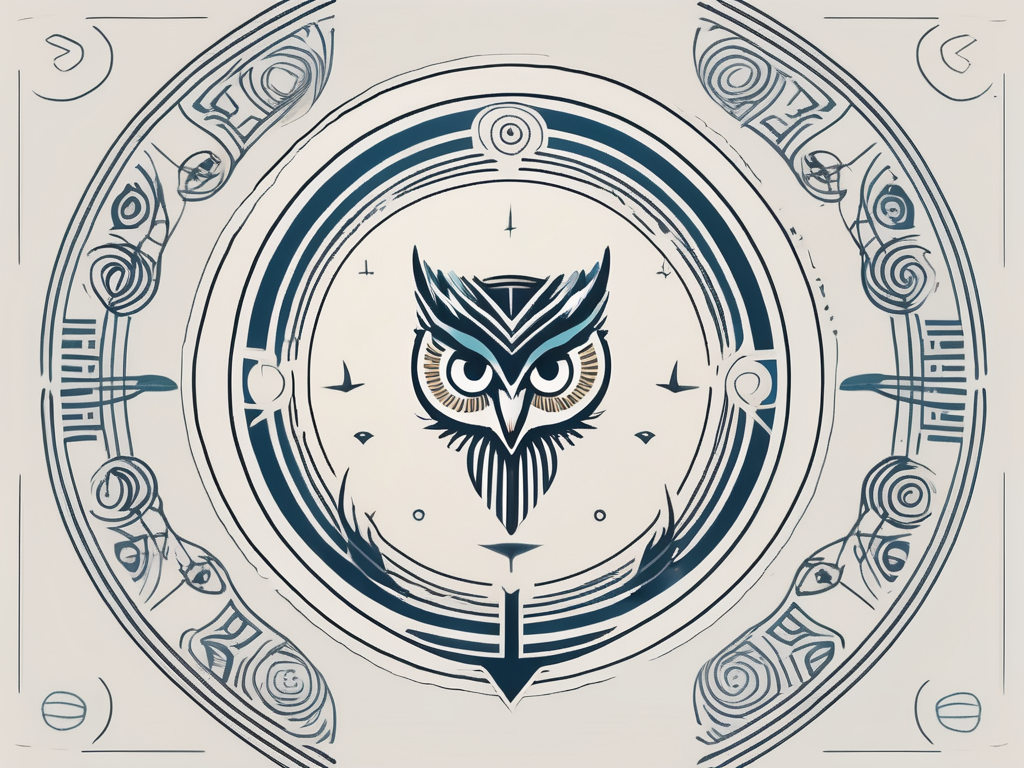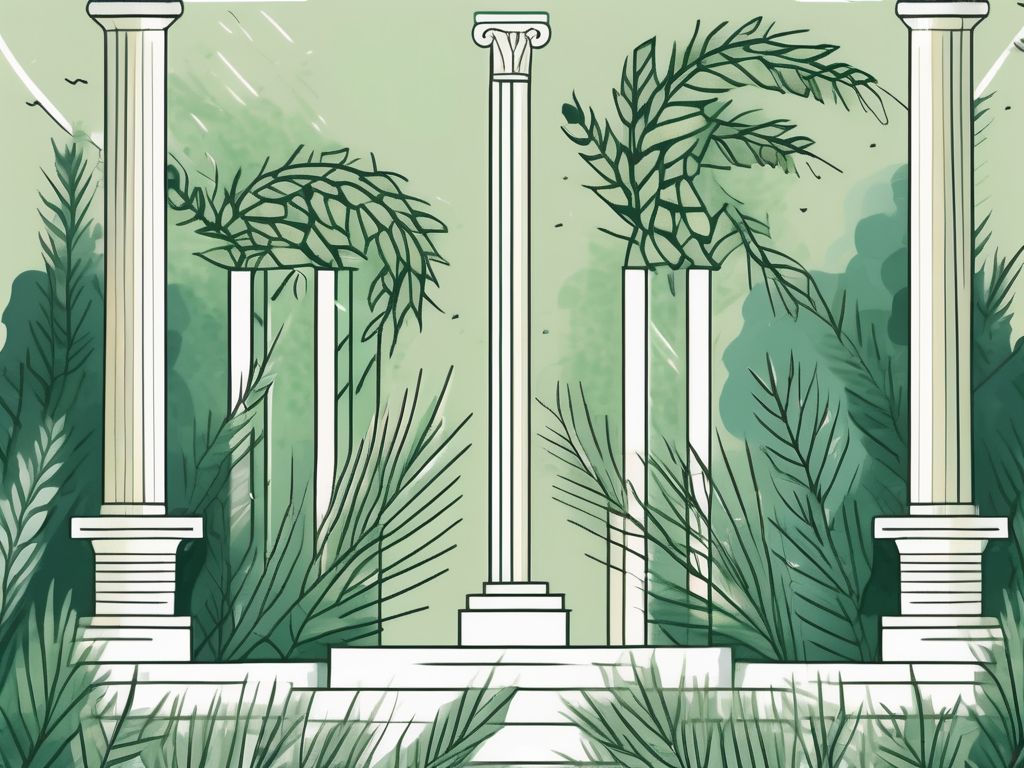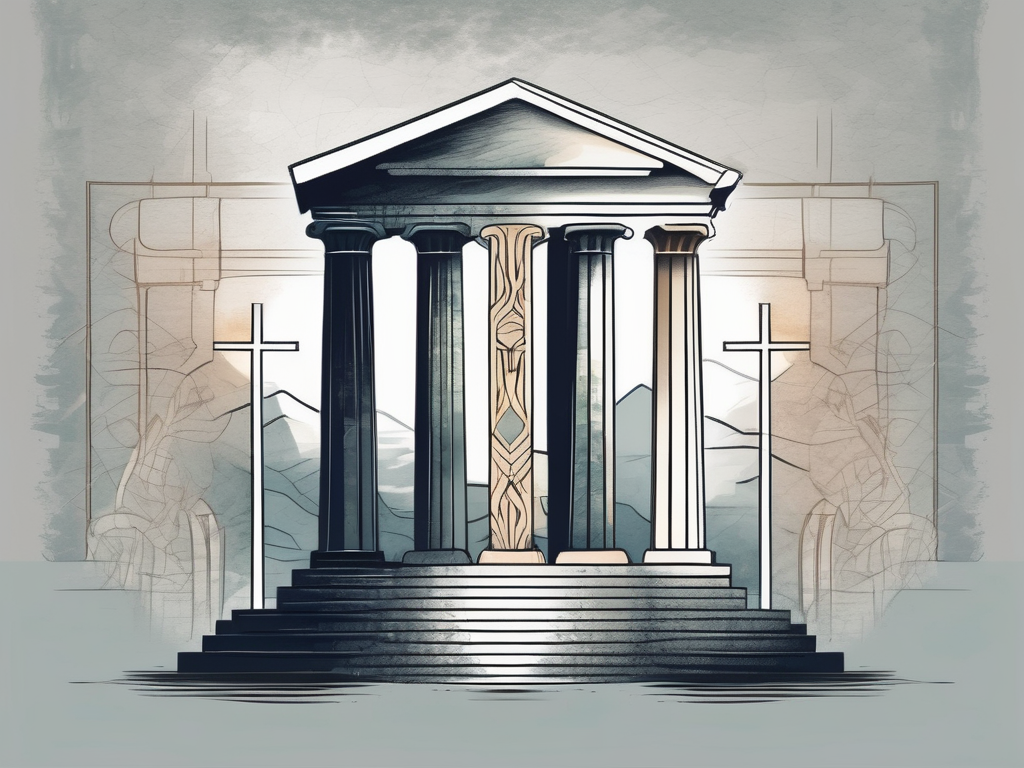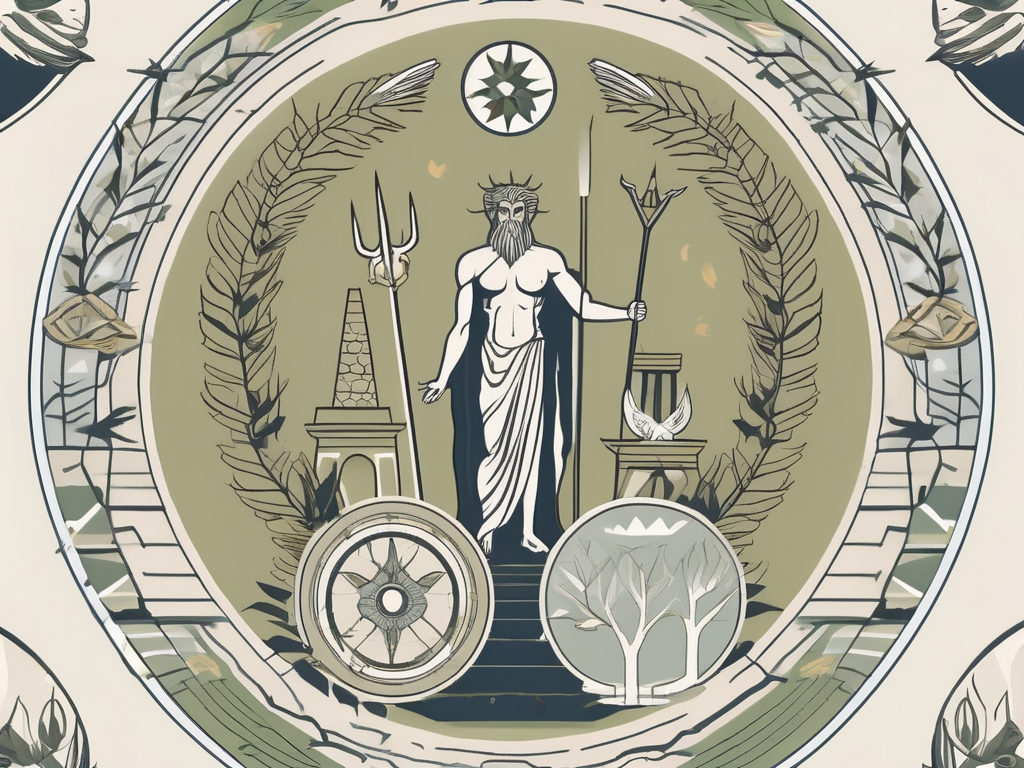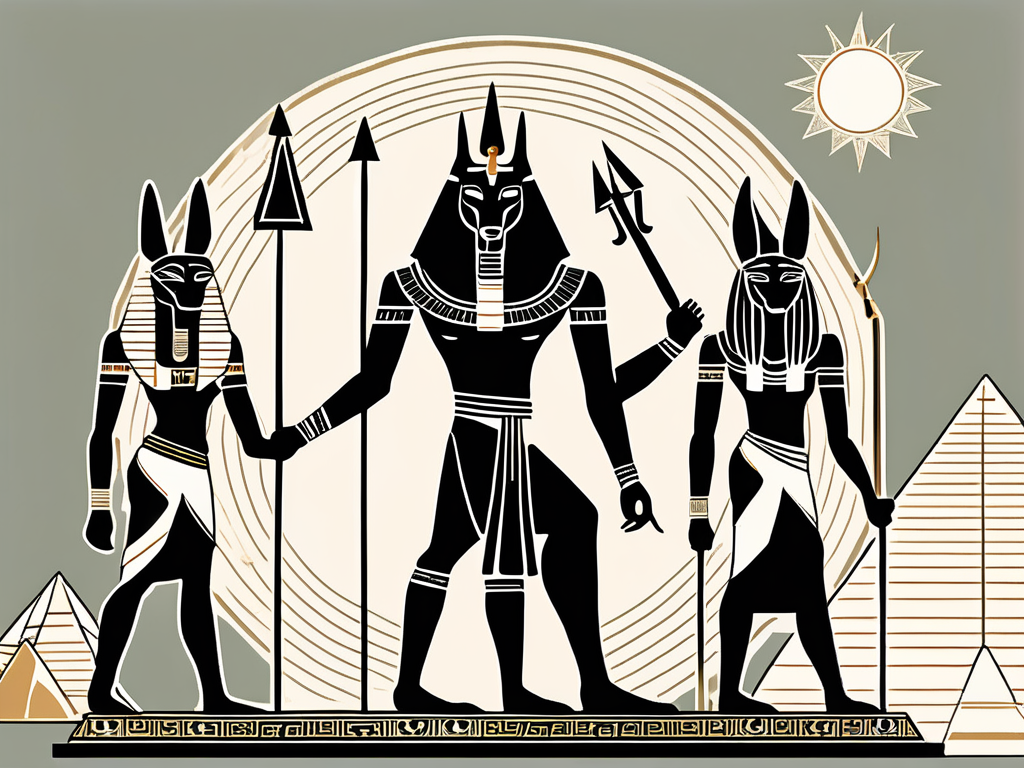Greek mythology has captivated people for centuries with its rich stories of gods and goddesses. These ancient deities were worshipped by the ancient Greeks and continue to be celebrated and studied to this day. In this article, we will delve into the intriguing world of Greek mythology, exploring the pantheon, the role of the gods and goddesses in mythology, their symbolism and powers, as well as their influence on modern culture.
Understanding the Pantheon: An Overview
Let’s start our exploration by understanding the pantheon of Greek gods and goddesses. The Greek pantheon was composed of a vast array of deities, each with their own unique characteristics and domains of influence. At the head of this divine hierarchy were the Twelve Olympians, the ruling gods and goddesses of the Greek pantheon.
The Twelve Olympians were the most powerful deities in Greek mythology. They resided on Mount Olympus, the mythical home of the gods. Zeus, the king of the gods and the god of thunder and lightning, presided over this council of divine beings. Other notable Olympians included Hera, the queen of the gods, Poseidon, the god of the sea, and Athena, the goddess of wisdom.
These gods and goddesses played prominent roles in many of the ancient Greek myths and were worshipped and revered throughout ancient Greece. Their stories and adventures continue to inspire and captivate us to this day.
But beyond the Twelve Olympians, the Greek pantheon also included numerous lesser-known deities. These divine beings possessed their own distinctive powers and realms of influence. Among them were deities such as Hades, the ruler of the underworld, Dionysus, the god of wine and celebration, and Demeter, the goddess of the harvest.
These lesser-known deities are equally fascinating and offer a broader understanding of the Greek pantheon. Exploring their stories and roles in Greek mythology allows us to uncover the diversity and complexity of the ancient Greek belief system.
One such lesser-known deity is Hades, the ruler of the underworld. In Greek mythology, Hades was the brother of Zeus and Poseidon, and together they divided the world into three realms. While Zeus ruled the heavens and Poseidon the seas, Hades became the lord of the underworld, a realm where the souls of the deceased resided. Often depicted as a stern and somber figure, Hades played a crucial role in the Greek concept of the afterlife.
Dionysus, on the other hand, was the god of wine and celebration. Known for his wild and ecstatic nature, Dionysus was associated with the pleasures of life and the liberation of inhibitions. He was often depicted with a crown of grapevines and accompanied by a retinue of revelers. The worship of Dionysus involved ecstatic rituals and festivals, where his followers would indulge in wine, music, and dance.
Demeter, the goddess of the harvest, was a vital figure in ancient Greek agriculture. She was believed to be responsible for the fertility of the land and the growth of crops. Demeter was often depicted holding a sheaf of wheat or a cornucopia, symbolizing abundance and prosperity. Her cult was particularly important in rural areas, where agriculture was the backbone of the economy.
These are just a few examples of the lesser-known deities that expanded the Greek pantheon beyond the Twelve Olympians. Each deity had their own unique stories, symbols, and cults, contributing to the rich tapestry of Greek mythology and religion.
The Role of Greek Gods and Goddesses in Mythology
Now that we’ve familiarized ourselves with the pantheon, let’s delve into the role of the gods and goddesses in Greek mythology. These divine beings played crucial roles in the narratives and epics that make up the fabric of Greek mythology.
The gods and goddesses often featured prominently in epic tales, serving as catalysts for the stories’ events. Their interventions and interactions with mortals shaped the outcomes of these narratives. For example, in Homer’s “The Iliad,” the Trojan War is instigated by the discord between the goddesses Athena, Hera, and Aphrodite.
These mythic interactions highlight the gods and goddesses’ abilities to bestow blessings, grant favor, or unleash their wrath upon mortals. It is through these divine interferences that the ancient Greeks sought to explain the complexities of life and the world around them.
But what about the lesser-known gods and goddesses? While Zeus, Poseidon, and Hera may be the most famous, there are countless other deities in Greek mythology, each with their own unique powers and domains. For example, Hestia, the goddess of the hearth, was responsible for maintaining the sacred fire in every home. Demeter, the goddess of agriculture, ensured the fertility of the earth and the prosperity of crops.
Divine intervention was a recurring theme in Greek mythology. The gods and goddesses frequently interceded in the affairs of mortals, often altering the course of events. These interventions could be both positive and negative, rewarding loyalty and punishing hubris.
For instance, Zeus, the king of the gods, would often descend from Mount Olympus to punish those who defied him or his divine order. He would unleash thunderbolts and storms, reminding mortals of his power and authority. Likewise, other deities would offer aid and guidance to heroes in their quests and endeavors. Athena, the goddess of wisdom, would often provide strategic advice and protection to those she favored.
These interactions between the divine and mortal realms showcase the profound and intricate relationship between gods and humans in ancient Greek mythology. The gods and goddesses were not distant and detached figures but rather active participants in the lives of mortals, shaping their destinies and influencing their actions.
Furthermore, the gods and goddesses were not immune to human emotions and desires. They experienced love, jealousy, anger, and sorrow, just like mortals. These human-like qualities added depth and complexity to their characters, making them relatable and captivating figures in Greek mythology.
In conclusion, the gods and goddesses in Greek mythology played multifaceted roles, from instigating epic tales to intervening in the lives of mortals. Their interactions with humans showcased their powers, but also their vulnerabilities and emotions. The Greek pantheon is a rich tapestry of divine beings, each contributing to the intricate web of myths and legends that have captivated generations.
The Symbolism and Powers of Greek Deities
As we continue our exploration, it is essential to examine the symbolism and powers associated with the Greek gods and goddesses. Each deity had distinct attributes and abilities that symbolized their essence and domain of influence.
Symbols and Attributes: Identifying the Deities
The gods and goddesses of Greek mythology were often associated with specific symbols and attributes. These symbols served to identify and represent each deity. For example, Aphrodite, the goddess of love and beauty, was often depicted with a golden apple, symbolizing her power to incite desire and passion.
These symbols allowed worshippers and observers to recognize the deities instantly, contributing to the visual language of Greek art and sculpture. They also added depth and nuance to the stories and myths associated with each god or goddess.
Divine Powers: The Abilities of the Gods and Goddesses
The Greek gods and goddesses possessed extraordinary powers that set them apart from mortals. Zeus could control the weather with his thunderbolts, Poseidon could stir up tempestuous seas, and Apollo could bring disease or healing with a mere touch.
These divine powers were woven into the narratives of Greek mythology, reflecting the ancient Greeks’ awe and reverence for the gods. The gods and goddesses’ abilities served not only to entertain and enchant but also to convey moral lessons and philosophical ideas.
Worship and Rituals: Honoring the Greek Pantheon
Having explored the mythic aspects of the Greek gods and goddesses, let’s now turn our attention to the worship and rituals associated with their veneration.
Temples and Sacred Sites: Spaces of Worship
The ancient Greeks constructed magnificent temples and sacred sites to honor their deities. These architectural marvels served as places of worship, offering devotees a physical space to connect with the divine.
Temples dedicated to specific gods or goddesses were found throughout ancient Greece. Visitors would come to these sacred sites to offer prayers, sacrifices, and seek divine guidance. The Temple of Artemis in Ephesus and the Parthenon in Athens are just a few examples of the awe-inspiring temples that have survived to this day, serving as a testament to the Greeks’ reverence for their gods.
Rituals and Festivals: Celebrating the Deities
Throughout the year, the ancient Greeks celebrated a multitude of festivals and rituals dedicated to their gods and goddesses. These events were marked by processions, feasting, athletic competitions, and dramatic performances.
One of the most famous festivals was the Olympic Games, held in honor of Zeus. These games brought together athletes from all Greek city-states, fostering a sense of unity and camaraderie among the ancient Greeks. Other festivals, such as the Dionysia, celebrated Dionysus, the god of wine, with theatrical performances and revelry.
The Legacy of Greek Mythology in Modern Culture
Even though Greek mythology originated thousands of years ago, its influence can still be felt in modern culture.
Greek Mythology in Literature and Art
Throughout the centuries, countless authors and artists have drawn inspiration from Greek mythology. Greek myths continue to be retold in various forms, from classic works of literature such as “The Odyssey” and “Metamorphoses” to contemporary novels like Rick Riordan’s “Percy Jackson” series.
Artists throughout history have also been captivated by the gods and goddesses of Greece. Sculptures, paintings, and mosaics depicting these mythical beings grace museums and galleries worldwide, emphasizing their enduring appeal and significance.
The Influence of Greek Deities on Modern Pop Culture
The influence of Greek mythology extends beyond literature and art to permeate modern popular culture. References to Greek gods and goddesses can be found in films, television shows, and even video games.
Superheroes like Wonder Woman and Thor draw inspiration from Greek mythology, imbuing their stories with elements of ancient epic tales. Additionally, terms derived from Greek deities, such as “narcissism” and “aphrodisiac,” have become commonplace in our vocabulary, further emphasizing the enduring impact of Greek mythology on modern society.
As we conclude our exploration of the fascinating world of Greek gods and goddesses, it becomes evident that their stories and legacy continue to resonate with us. The enduring popularity of Greek mythology speaks to the timeless appeal of these ancient deities and the profound influence they have had on human culture throughout the ages.

